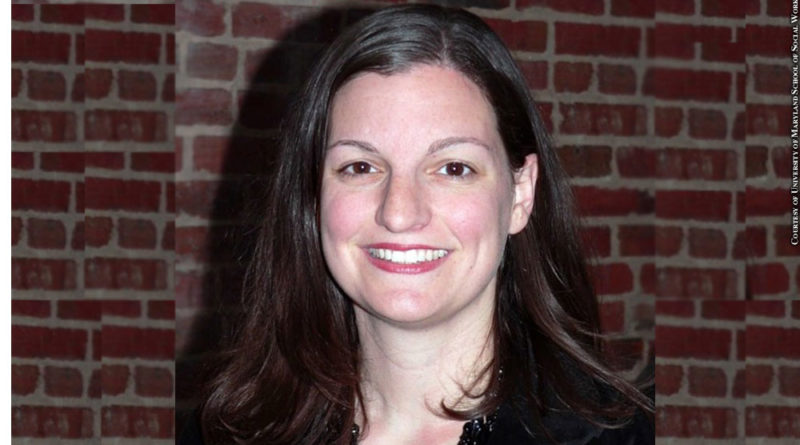Eric Hipple arrived at a fork in the road.
The life of the former Detroit Lions quarterback had taken a downward spiral. He had just lost his 15-year-old son to suicide, and now he was sitting in a Pontiac, Mich., jail cell, serving a three-month sentence for drunk driving.
“I had a choice to make,” Hipple said. “I can be the guy that I was — or I can get answers, find out why did any of this happen. I chose to find out what was going on.”
Hipple now travels the country sharing his story and helping people overcome the stigma and daily struggles associated with mental illness. In 2008, he published a book entitled “Real Men Do Cry.”
For many years, dating back to his childhood, Hipple suffered from undiagnosed and untreated depression. In 1997, he tried to take his own life by jumping out of a car traveling at 75 miles per hour.
It wasn’t until the death of his son, Jeff, in 2000 and subsequent jail sentence for self-destructive behavior that Hipple began to realize the depth of his own struggles with mental health. He sought help through therapy and medication.
“I wasn’t ready to accept it,” he said. “I didn’t want to deal with this stuff. There is a stigma [of weakness] associated with mental health [difficulties].”
Hipple is now trying to erase that stigma on his speaking tours and through his association with an ongoing study commissioned in 2014 by the Centers for Disease Control and Prevention called Online Screening and Early Intervention to Prevent Suicide Among Middle-Aged Men.
Dr. Jodi Frey, an associate professor and chairperson at the University of Maryland School of Social Work in Baltimore, volunteered to be one of the leading researchers for the study, which has screened more than 5,000 men between the ages of 25 and 64 in Michigan about their mental health.
Frey said Michigan has one of the highest suicide rates among men in the country, which is why the state was chosen for the study through the Healthy Men Michigan initiative. Of those screened on the website healthymenmichigan.org, more than 40 percent are screening at risk for suicide and more than 60 percent at moderate to high levels of depression, Frey said.
“It’s been really encouraging to see more and more men come out with their stories,” Frey said. “It’s such a change from what we have seen in the past.”
Since 1999, there has been an increase of suicides by middle-aged men in the United States, according to Frey. More than half of the states have seen a 30 percent increase in deaths by suicide, she said.
“We could no longer wait for people to call their counselor or engage in mental-health services,” Frey said. “They are so stigmatized. People are not picking up the phone. But people are willing to go online and get immediate feedback that, yeah, this is something you should check out and here are some resources that other people have used.”
The Healthy Men Michigan study uses athletes like Hipple and former NHL goalie Clint Malarchuk to help reach men in areas where the stigma of mental health as weakness might be most prevalent, such as professional sports, the military, prison guards, police and first responders.
The website mantherapy.org also aims to reach these audiences through informational material and a fictional character on video, Dr. Rich Mahogany.
“[Mahogany] takes all the norms of masculinity and uses it as a way to open doors to thinking about mental health,” Frey said. “He talks about hunting. He curses and farts. It’s a very different approach. As a mental-health professional, I would probably not talk like that or do those types of things. But it got us thinking as ways we can reach some of these men who are most at risk with their mental health.”
Malarchuck was a goalie for the Quebec Nordiques, Washington Capitals and Buffalo Sabres during the course of an 11-year career (1981-92) in the NHL prior to getting into coaching. Over the course of his life, he has battled obsessive-compulsive disorder, anxiety, depression and post-traumatic stress disorder. In 2014, he published an autobiography called “A Matter of Inches — How I Survived In the Crease and Beyond.”
In March 1989, Malarchuk suffered a horrific injury on the ice that saw the jugular vein on his neck get severed by the skate blade of an opposing player. He lost so much blood (1.5 liters) as a result of the injury that he believed he was going to die on the ice.
The PTSD that stemmed from that injury wasn’t officially diagnosed until 20 years later.
“The problem with mental illness is you can’t see it,” Malarchuk said. “With physical pain, like a broken arm, you can see it. With mental illness, we can hide it and still function to a degree.”
On the 58th and final day of his prison sentence, Hipple, who played 10 seasons for the Lions, decided he was going to take control of his life and be proactive. He was tired of listening to all the excuses people made for why they were in jail.
“I didn’t want to see my son’s legacy become, ‘He died and the whole family fell apart,'” Hipple said. “There is hope out there. Life can be really, really good once you approach it the right way and understand all these things that can happen once you are prepared for it.
“Things happen to us. They don’t define us. What defines us is what we do about them.”
Photo Credit: Courtesy of the University of Maryland School of Social Work
Issue 247: September 2018

